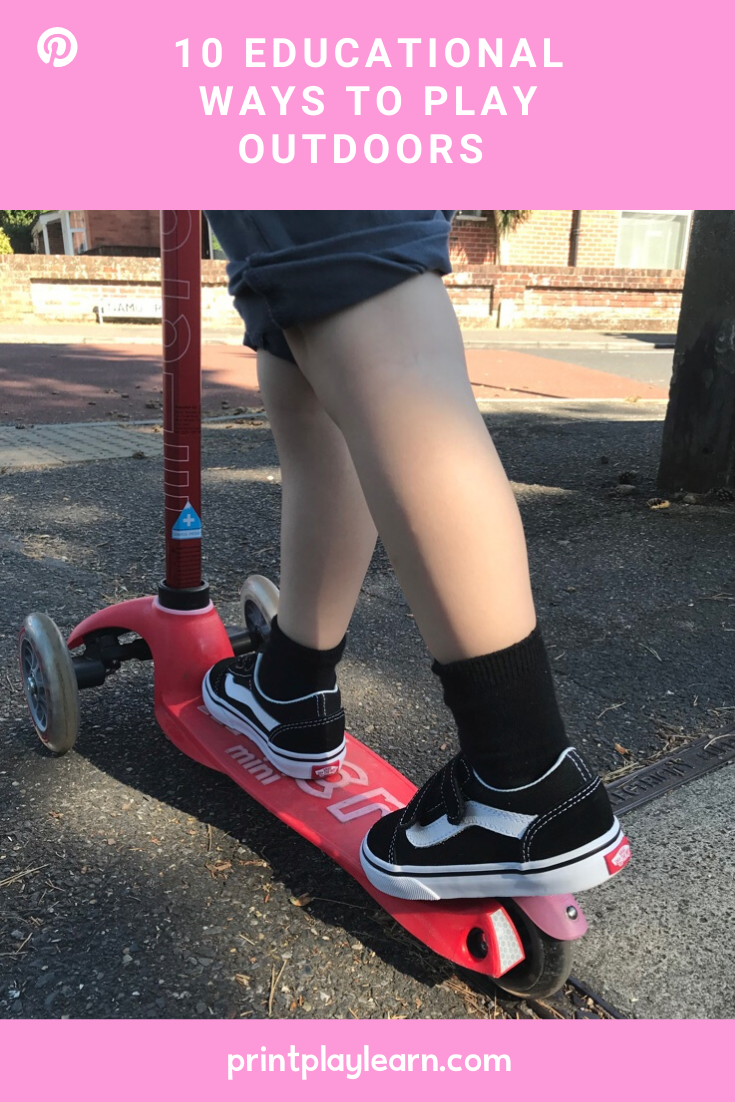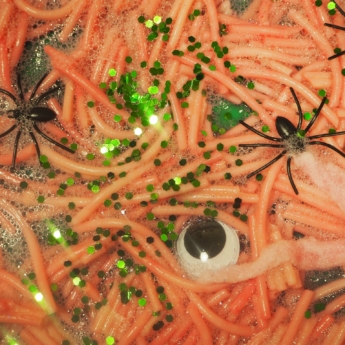10 Educational Ways to Play Outdoors
If there’s one thing that makes learning from home easier, it’s getting outdoors in the sunshine! Hooray for summer and the promise (fingers crossed) of warmer days made for being outside. If you’re eager to make playing outdoors educational, here are 10 fun activities worth a try:
Let them get messy
First up, let’s remember the importance of simply letting our children play. Being outdoors is full of natural sensory benefits with different textures and materials to explore. Try to let them fully experience the outdoors by letting them get messy – whether it’s getting their hands muddy in the garden or splashing in puddles on your daily walks. Your children will learn a lot about the world around them.
Take ‘learning’ outside
To add more fun to your usual learning experiences, try a change of scene by taking reading, worksheets or other simple learning printables outside. Set out a picnic blanket with cushions and story books or set-up a tuff tray with flashcards and matching toys. You don’t have to make it complicated – your child will likely enjoy the novelty of learning outside in the sunshine.
Nature play
Aside from the fun of water, mud and the many different sights, sounds and textures of outdoors – outside there are natural resources perfect for playful learning. Help your children to explore flowers, grass, stones, sticks – any safe outdoor resources they can explore and use to create, count or simply imagine with.
Use sticks to make shapes
Sticks in particular are fun to play with in all sorts of ways. Try using them to make shapes on the ground for a simple maths activity. What 2D and 3D shapes can your child make?
Spotting walks
Another super easy way to help your child learn outdoors? Make your daily walks fun and interesting by spotting things together. You can adapt the challenge to suit the age of your child. Spot letters of the alphabet on signs and registration plates, spot things that start with sounds or letters (I spy!) or choose a shape and count how many of that shape you can see on your walk.
You can also chat about other things you see on your walks. Help your children find the beauty in trees and plants, think together about the different styles of architecture around you or look out for interesting clouds!
Explore and measure
To add another educational angle to your child’s outdoor explorations, hand them a tape measure and see if they can do some measuring and comparing. Which tree has the widest trunk? How tall are daisies? What is the biggest stone they can find? By encouraging your child to take a closer look at things and compare sizes you’ll be helping them problem solve and think mathematically.
Water play
Another simple sensory activity which will boost motor skills, provide a therapeutic experience and help your children use their imagination is: playing with water! This could be as simple as a big bowl of water and some toy cars, a tuff tray filled with bubbly water and building blocks or a paddling pool for splashing in.
Obstacle courses
A garden obstacle course is a great way to help your kids run off steam and practice their gross motor skills. Plus, if you get them to help you set it up, they’ll also be flexing their creative muscles. Use chairs, play tunnels, stones, cushions, balls – whatever you have available to make a set of challenges to manoeuvre through.
Garden engineering
As well as building a garden obstacle course, you could challenge your child to have a go at building other outdoor structures, like a bridge for toy cars, a little fairy garden or a play cafe. Watch as they use their imagination and practice creating and engineering with things they find outdoors.
Treasure hunts
What child doesn’t love a treasure hunt? Set up clues around the garden, park, or woodland (whatever you have access to) and enjoy 5 minutes’ peace while you sit and watch them hunt! Depending on your child’s age, you could draw simple visual clues, write sentences (great for reading practice) or print off flashcards – you say a word/sound/number and they have to run to find the right one!
If you enjoyed this blog, help us inspire more families by sharing it with other parents excited to make learning fun! Plus, find more joyful learning ideas here.

